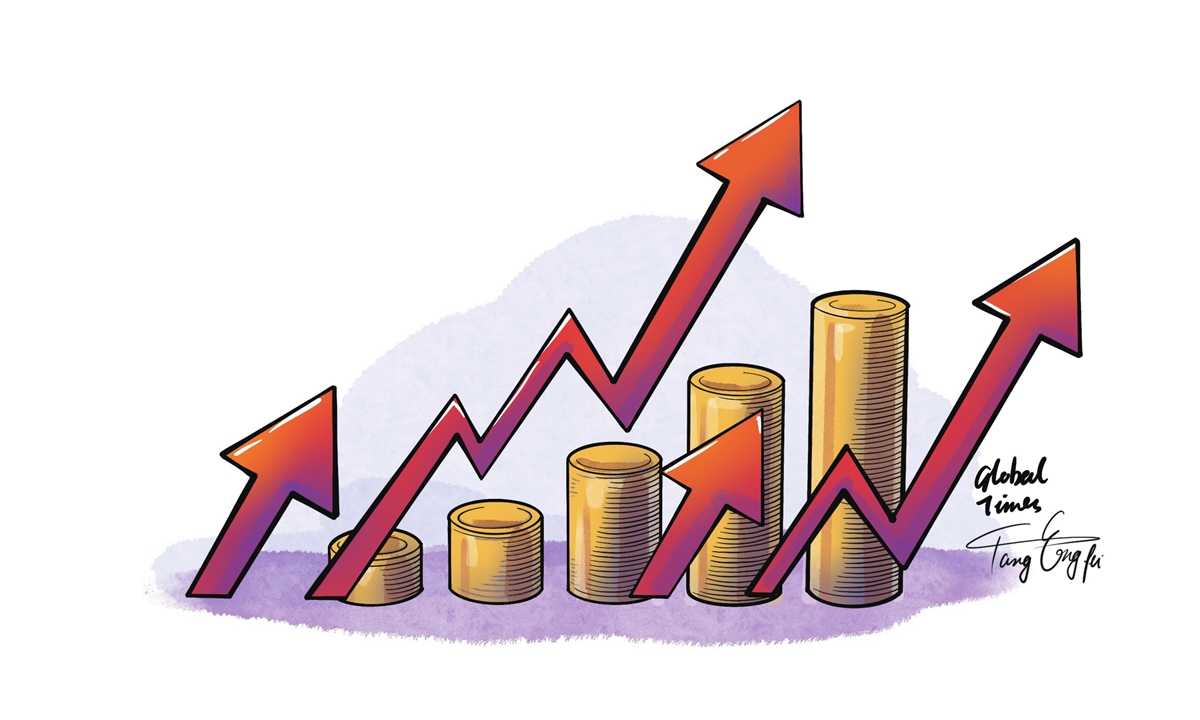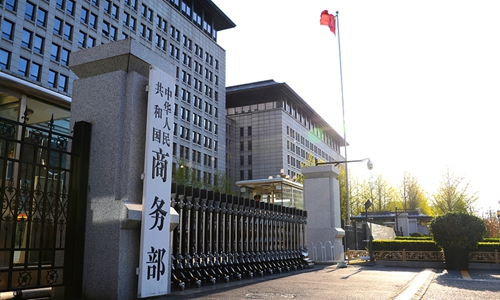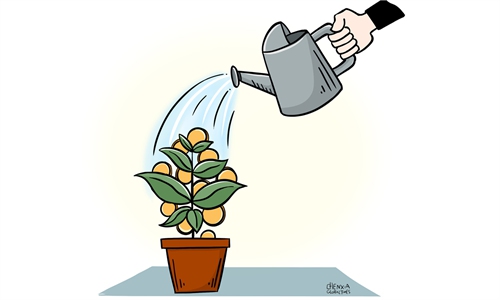
Illustration: Tang Tengfei/GT
Global investors will increase their holdings of Chinese assets in the second half of 2022, as the world's second-largest economy is expected to recover from challenges, backed by support policies from the government - a trend that will go against the headwinds of a global slowdown, an investment strategist from Standard Chartered said on Wednesday.
The investment strategist also advised taking increased stakes in Chinese A shares and China-related stocks in overseas markets, as an effort to hedge against the risk of an economic slowdown in Europe and the US.
Ethan Wang, head of investment strategy for wealth management at Standard Chartered China, told the Global Times on Wednesday that despite fluctuations in the first few months of the year, capital inflows have increased since April.
A net inflow has been seen since the establishment of the Stock Connect, which links Hong Kong with the Shanghai and Shenzhen stock exchanges, and this further indicated the attractiveness of the Chinese capital market, Wang said.
"From the perspective of capital and asset allocation, the Chinese market has the opportunity to see further inflows. Therefore, we are more optimistic… foreign capital will have the opportunity to increase holdings of Chinese assets," Wang said.
Such an optimistic view on the Chinese capital market comes as an increasing number of global investment banks, including Goldman Sachs and JPMorgan Chase & Co, have rooted for Chinese assets, refuting claims in some foreign media outlets that investors are fleeing China's financial markets.
A Bloomberg report on Wednesday, citing recent losses in the Hang Seng China Enterprises Index of stocks and the yuan's losses against the dollar among other indicators, said that "a renewed risk-off sentiment" prevails in the Chinese financial market, which shows "how COVID Zero and crackdowns on the tech and property sectors have continued to plague investors halfway through 2022."
Analysts pointed out that indicators the Bloomberg report cited cannot represent the whole picture of the Chinese market, and the Chinese currency - though seeing losses under the shadow of US monetary policy - has already shown its strength and outperformed other major currencies in the world.
Moreover, investors are increasing their stakes in the country, betting on opportunities in the long run amid rising global uncertainty, according to analysts and some global financial institutions.
In a report on Wednesday, Standard Chartered said that it expected the US Federal Reserve will raise rates by another 150 basis points to 3.25 percent by year-end, taking the rate beyond the Fed's "neutral" level of 2.5 percent.
As Fed policy turns restrictive, the risk of a US recession in the next six to 12 months will rise significantly, according to the report titled "2022 H2 Global Market Outlook: Walking a Tightrope."
The report noted that the combination of high and rising inflation and increasingly hawkish central banks worldwide has raised the probability of a sharp growth slowdown.
The IMF said on Tuesday that avoiding a recession in the US will be "increasingly challenging" and it again cut its 2022 US growth forecast to 2.3 percent from 2.9 percent in late June.
"China, meanwhile, is on the opposite side of the economic cycle… Chinese policymakers have clearly signaled they are willing to offer a reasonable level of policy support, leading us to believe the economy will gradually recover from the challenges faced in the first half," read the Standard Chartered report.




